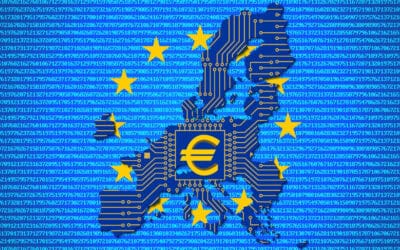One of the advantages of traveling a lot is that you inevitably start to look at the world from different perspectives. By looking beyond the stock market of your home country and comparing investing in different countries, you occasionally come across startling figures.
E.g., the combined value of just two American companies, Apple ($700bn) and Facebook ($400bn), is higher than that of the entire Brazilian stock market ($1,000bn). Would you rather own a smartphone producer and a social media platform, or all large public companies of the world’s 8th largest economy?
The value of Amazon alone ($800bn) would be sufficient to buy the entire Russian stock market ($700bn). Russia is the world’s 10th largest economy based on the most recent figures.
You may say these are developing countries with problems such as rampant corruption, and therefore deserve to trade so cheaply. To which I’d reply, the combined value of Amazon, Facebook and Apple also buys you the entire German stock market ($1,900bn). Germany sure isn’t a developing a country known for graft!
To anyone who believes that there has to be some kind of connection between a company’s share price and the value of its underlying business, the world has become a confusing place. For the valuation of some companies, the sky seems to be the limit. Others are so cheap that it beggars belief.
Luckily though, with the recent rout of these three high-profile companies’ share prices, in particular, a growing number of people has started to wonder if the last nine years may have been a bit of an anomaly.
I suspect that we will see a growing number of investors question more critically at what price they have bought into some of their investments. After almost a decade of most investors favoring “growth” at almost any price, we may now see a return to “value”.
Usually, such trends then last for a good number of years.
The difficulty (and ease) of finding good value
I am not out to bash the Facebooks, Apples, or Amazons of this world. These are all world-class companies with incredible products and services, all of which I have used extensively in the past. I do believe in some old-fashioned principles, though. E.g., when going shopping, I try to buy quality products at bargain prices.
The same principles hold true in investing. You have higher odds of long-term success in investing your own money if you identify a great business and end up buying it at the right price, rather than at any price just to join the hype du jour.
The difficulty is obviously to make reliable judgments about what constitutes cheap. Who hasn’t made the mistake of picking up a “bargain” product somewhere, only to realize later that there was a good reason why it was so cheap in the first place. You don’t want to be stuck in an investment that looked cheap, but also remains cheap forever, or which may even turn out to have been a false bargain of which the price then sinks yet further.
However, with a bit of common sense and some careful research, you can avoid falling into such traps.
E.g., on the surface, German banking giant Deutsche Bank appears to be cheap. Since 2007, the share price has gone down, from €90 to now just €7, and it trades at just 0.28 times the value of its underlying assets. In theory, that should be extremely cheap. However, as soon as you only even scratch the surface of Deutsche Bank’s actual business, you start to realize that not only does it have poor prospects, it also probably has a lot of unquantifiable risks stemming from bad management decisions. Deutsche Bank is much more likely to go to Zero than recover. From that perspective, it’s anything but cheap, even if at first glance it appears to be cheap. Beware the tree with rotten roots!
Though then there are cases like Danske Bank, the Danish bank that was recently hit by a major money laundering scandal at its Estonian subsidiary. Its share price plummeted last year, and Danske Bank lost about half of its value, i.e., its market capitalization went down by about €15bn. Bad as that scandal was from a PR and regulatory perspective, the Estonian subsidiary only constituted 3% of the group’s business. The core business of Danske Bank seems to be doing okay. There’ll be a hefty fine coming its way, for which current estimates range anywhere from €1bn to €9bn; and there is a high likelihood it’ll come out in the range between €2.5bn and €5bn. From that perspective, the market seems to have over-reacted. This isn’t an endorsement of Danske Bank shares (I only had a cursory look at it), but this is a good example for a situation where I’d suspect investors currently get a good deal and the share price will likely recover.
My approach is based on the assumption that I have higher odds of success if I identify a great business and pay the right price, rather than pay any price.
There are countless quality opportunities out there
Any and all approaches to analyzing stocks are flawed, and any indicator or ratio you can argue about until the cows come home.
Besides having to crunch numbers, there is also an explorer or detective type of work to be done. Some of which is based on gut feeling, life experience, and common sense.
I do believe, though, that ordinary people have what it takes to beat many of the pros at their own game. E.g., I had a strong suspicion Apple was in for problems when I saw “iPhone upgrade fatigue” hitting my friends and myself. When you notice masses of previously fervently loyal customers of a one-product company growing tired of that one product, then it’s pretty clear there is trouble brewing.
I suspect that we are now entering a protracted (multi-year) period of weakness for the technology giants, based on consumer fatigue, privacy concerns, political issues relating to monopolies and partisanship, and a changing Zeitgeist that will steer a growing number of people back towards giving tech less prominence in their lives.
Luckily, there is an entire world of opportunities outside of the “FAANG” stocks. There are at least 50,000 publicly listed companies in the world. Also, the last 20 years have seen many formerly developing countries mature to a point where they are now investable propositions. E.g., did you know that Poland is now the first country of the former Soviet bloc to be ranked a “developed market”? The times they are a-changin’! There are plenty of opportunities out there if you know where to look.
In amidst all the hype that recent years have brought for some widely-held stocks, it’s quickly forgotten that there are currently entire industries and countries that have hardly ever been cheaper to buy into than right now. You don’t even need to go somewhere exotic to strike such incredible bargains. The fact that the German stock market is worth the equivalent of just three American countries points you into that direction. Look no further than the world’s 3rd largest economy, a country that has created some of the world’s greatest brand names and products and which features a good number of companies that are global household names even.
I am currently looking at a number of potential opportunities from my former home country. Besides a dozen other ideas that I am investigating for you right now.
My next report isn’t going to be quite the 94-page piece that I recently published about Gazprom. Though it will be comparatively exciting in terms of buying into a world-renowned company at an extraordinarily cheap valuation and at the moment in time when that is likely going to change again.
Stay tuned for more, there is plenty of good stuff coming your way over the next few months.
Did you find this article useful and enjoyable? If you want to read my next articles right when they come out, please sign up to my email list.
Share this post:







